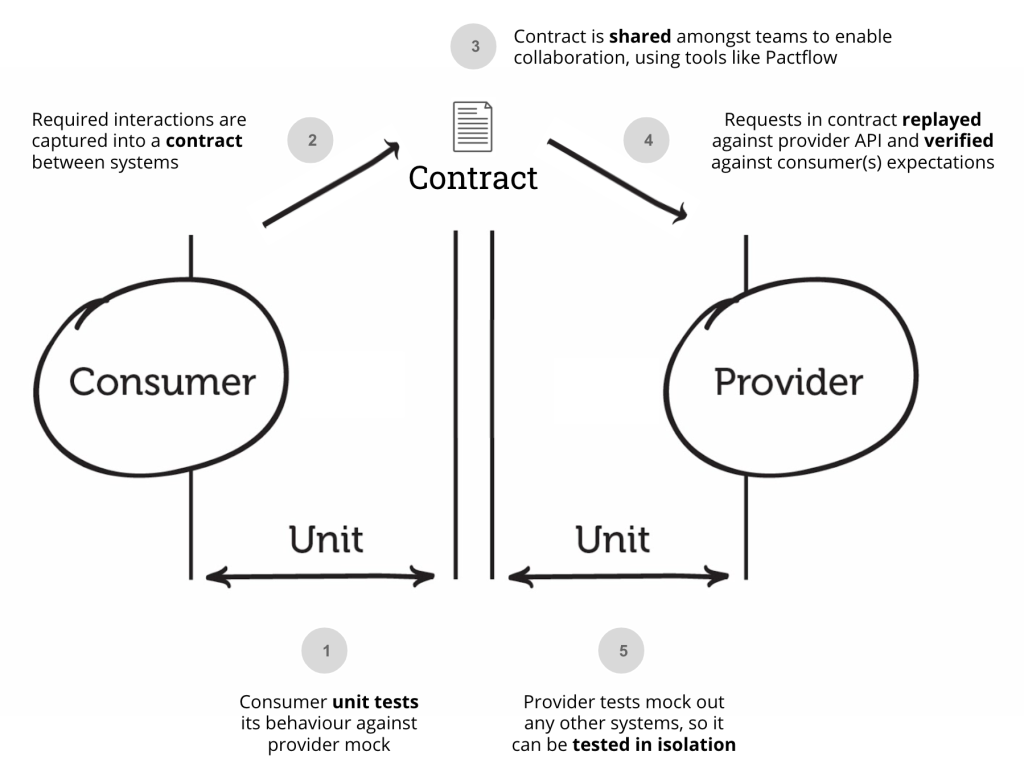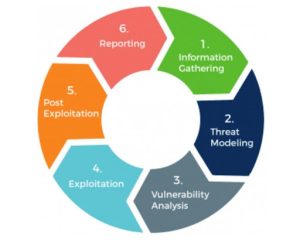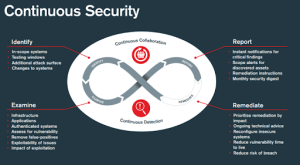The Need for AI Testing in Software Quality Assurance
In the dynamic sphere of software development, ensuring the quality of a product is a multifaceted challenge. It extends beyond code proficiency to encompass a broader spectrum of factors, such as faulty requirements, intricate infrastructures, and stringent time constraints.
According to McKinsey, 56% of businesses cite inaccuracy as one of their most prominent risks with the exponential growth in new technologies. Quality assurance is becoming a central investment area for startups and large enterprises as they seek to tackle the problem.
Achieving comprehensive quality assurance requires a strategic approach, and one of the key considerations in this domain is integrating AI testing.
What is AI Testing?
AI testing in software quality assurance is a cutting-edge approach that uses AI technology to improve the testing process’s efficacy and efficiency. In contrast to traditional testing approaches, which rely primarily on manual efforts, AI testing automates different testing elements, from test case generation to execution and result analysis.
This novel approach uses machine learning algorithms to adapt to changing software environments, recognize patterns, and predict possible problems. AI testing is instrumental in dealing with the intricacies of AI-based systems, where it must traverse issues such as self-learning capabilities, prejudice, ethical considerations, and the requirement for openness and explainability.
Software quality assurance teams can gain more test coverage, earlier defect discovery, and enhanced overall reliability by leveraging the power of AI.
The Imperative Need for AI Testing
Though proficient in assessing code quality, traditional testing methodologies often need to address the multifaceted challenges modern software projects encounter. This section delves into why AI testing has become a cornerstone in software quality assurance, exploring its role in mitigating common pitfalls, enhancing testing strategies, and elevating the overall reliability of AI-based systems.
Beyond Code Quality
Traditional testing methodologies often focus primarily on code quality, overlooking various root causes that can lead to undesirable behaviours in software. AI testing emerges as a solution that scrutinizes the intricacies of code and delves into the complexities arising from faulty requirements, intricate infrastructure, and time pressures.
As many as 70% of companies report minimal impact of AI, and 87% of data science projects fail due to inadequate testing and unclear business objectives.
Addressing Common Reasons for AI Project Failures
AI projects, while promising in their potential, often face challenges that can lead to failure. Identifying and addressing these challenges is crucial for successfully implementing AI-based systems.
They highlight why AI testing is a huge part of software quality assurance. Some common reasons for AI project failures include:
Insufficient Data Quality
Inadequate data quality is a formidable obstacle in software quality assurance, particularly regarding AI models. The quality of the data utilized for training and decision-making substantially impacts the accuracy and dependability of these models. Inadequate or poor-quality data can create biases and mistakes, jeopardizing the AI system’s performance. Moreover, it impacts the bottom line of your business.
Comprehensive data validation and cleansing methods are integral to the testing process to verify that the underlying data fulfills the strict requirements for accurate model training and decision outputs.
Lack of Expertise
Another significant barrier is a lack of machine learning, data science, and AI testing expertise. AI model implementation and testing necessitate a specific skill set beyond standard software development.
Without the necessary knowledge, projects are prone to failure and unsatisfactory results. Collaboration between domain experts, data scientists, and QA professionals is critical in the context of software quality assurance.
A multidisciplinary approach guarantees that testing methodologies are in sync with the complexities of AI technologies, allowing for a more thorough evaluation of model performance.
Ethical Concerns
Ethical concerns in AI testing highlight the possibility of unintentional biases in models resulting from the training data. This ethical aspect needs a conscientious testing approach beyond standard quality assurance measurements. Testing methodologies must include tests for fairness, transparency, and ethical considerations to ensure that AI systems work ethically and equitably.
Inadequate Testing Strategies
Inadequate testing strategies exacerbate the difficulties involved with AI-based systems. While useful in traditional software, traditional testing approaches may fall short when addressing the complexities of AI models. Testing AI systems necessitates a distinct and adaptive strategy considering self-learning capacities, non-determinism, and explainability.
Failure to Adapt to Change
Failure to adapt to change is a peril, especially given the dynamic environments in which AI models operate. To retain optimal performance and functionality, AI systems must constantly adapt and change in response to changing conditions. It is essential to incorporate testing approaches that measure the adaptability and responsiveness of AI models to dynamic settings within the software quality assurance framework.
Minimizing Adverse Behaviour with Frameworks and Best Practices
Adhering to recognized frameworks and best practices is critical for mitigating undesirable software behaviour. These guidelines provide a systematic approach to detecting and resolving problems from various sources. Adopting frameworks such as SOLID, BDD, and TDD Principles is critical in improving the quality assurance process.
SOLID Principles
SOLID, an acronym for Single Responsibility, Open/Closed, Liskov Substitution, Interface Segregation, and Dependency Inversion, encapsulates principles guiding object-oriented design. By adhering to these principles, developers create modular, scalable, and resilient systems, facilitating effective testing and maintenance.
BDD Principles
Behaviour-Driven Development (BDD) focuses on collaboration between developers, QA professionals, and non-technical stakeholders to define and verify system behaviour. BDD principles contribute to improved communication, reduced ambiguities in requirements, and the creation of executable specifications, enhancing the overall testing process.
TDD Principles
Test-driven development (TDD) involves writing tests before implementing the actual code. This approach ensures the code meets specified requirements and maintains functionality over time. TDD principles promote code reliability, faster development cycles, and ease of maintenance.
The Role of AI Testers in Software Quality Assurance
Engaging AI testers, especially those certified by ISTQB®, brings many benefits to the software quality assurance process.
- Holistic Understanding of AI Trends
AI-focused ISTQB® Certified Testers bring a thorough understanding of the present status and projected trends in artificial intelligence. This understanding enables them to connect testing methodologies with the developing AI technology ecosystem.
- Expertise in ML Model Implementation and Testing
AI testers know firsthand how to implement and test machine learning (ML) models. This knowledge enables them to identify critical areas where testers can impact the quality of ML models most, assuring optimal performance and dependability.
- Addressing Challenges in AI-Based Systems
Self-learning capabilities, prejudice, ethics, complexity, non-determinism, transparency, and explainability are all unique issues when testing AI-based systems. ISTQB® Certified Testers can handle these issues and contribute to a comprehensive test approach.
- Designing and Executing Test Cases for AI-Based Systems
AI testers are experts at creating and executing test cases for AI-based systems. This involves considering the test infrastructure’s requirements to suit the intricacies of assessing AI-driven applications.
- Leveraging AI to Support Software Testing
Certified AI testers understand how AI technology can be used to complement and optimize software testing procedures. They share insights into the strategic integration of AI tools to improve testing efficiency, from test automation to predictive analysis.
The Business Benefits of AI Testing
AI testing offers a myriad of advantages that extend beyond traditional testing methods. Some key benefits include:
- Improved Efficiency and Speed
AI testing automates repetitive tasks, allowing for faster execution of test cases. This accelerates the testing process and enhances the overall efficiency of the software development life cycle. The graphic below shows the processes that consume the most time with manual testing. AI testing can automate many of these tasks.
- Enhanced Test Coverage
AI testing can explore many test scenarios, ensuring comprehensive coverage. This is particularly beneficial in complex systems where manual testing may fail to examine all possible combinations and interactions. Test automation replaces 50% of manual testing efforts.
- Early Detection of Defects
AI testing can identify defects early in software development, reducing the cost and effort required for bug fixing. Early defect detection contributes to a more robust and stable software release. The longer it takes to find defects, the higher the cost to your business.
- Adaptive Testing in Dynamic Environments
AI testing frameworks are designed to adapt to dynamic and evolving environments. This adaptability is crucial for AI-based systems that operate in real-time and respond to changing conditions.
- Efficient Handling of Big Data
AI testing is adept at handling large datasets, a common characteristic of AI and machine learning applications. This capability ensures thorough testing of models trained on extensive data, leading to more reliable and accurate results.
- Increased Test Reusability
AI testing models can be reused across different projects and applications. This reusability saves time and promotes consistency in testing methodologies and practices.
- Enhanced Predictive Analysis
AI testing tools can analyze historical testing data to predict potential issues and areas of concern. This predictive analysis empowers QA teams to address problems before they escalate proactively.
- Improved User Experience
By simulating real-world scenarios and user interactions, AI testing improves user experience. This includes identifying performance bottlenecks, ensuring responsiveness, and validating the overall usability of the software.
- Cost Reduction
While the initial setup of AI testing may require an investment, the long-term benefits include significant cost reductions.
Automated testing processes lead to faster releases, reduced manual efforts, and lower overall testing expenses.
Summary
Integrating AI testing in software quality assurance is pivotal for addressing the multifaceted challenges posed by modern software development. ISTQB® Certified Testers, armed with AI testing expertise, play a crucial role in ensuring the reliability, performance, and ethical integrity of AI-based systems, thereby elevating software quality assurance standards.
Embracing the principles of SOLID, BDD, and TDD further fortifies the foundation of a comprehensive and effective testing strategy. AI testing is indispensable in pursuing unparalleled software quality as the software landscape evolves.
The extensive benefits of AI testing, from increased efficiency to improved user experience and cost reduction, underscore its significance in shaping the future of software testing and quality assurance.
The early identification of adverse behaviour is vital. Businesses want to ensure the best experience for their consumers and that the services offered are more performant and reliable than competitors.
Contact qabound today to for expertise in all phases of the software testing life cycle to find bugs before your customers do.





 The Imperative of Security Testing
The Imperative of Security Testing
 The Evolution of Security Testing
The Evolution of Security Testing


 The Dynamic Landscape of Cybersecurity
The Dynamic Landscape of Cybersecurity